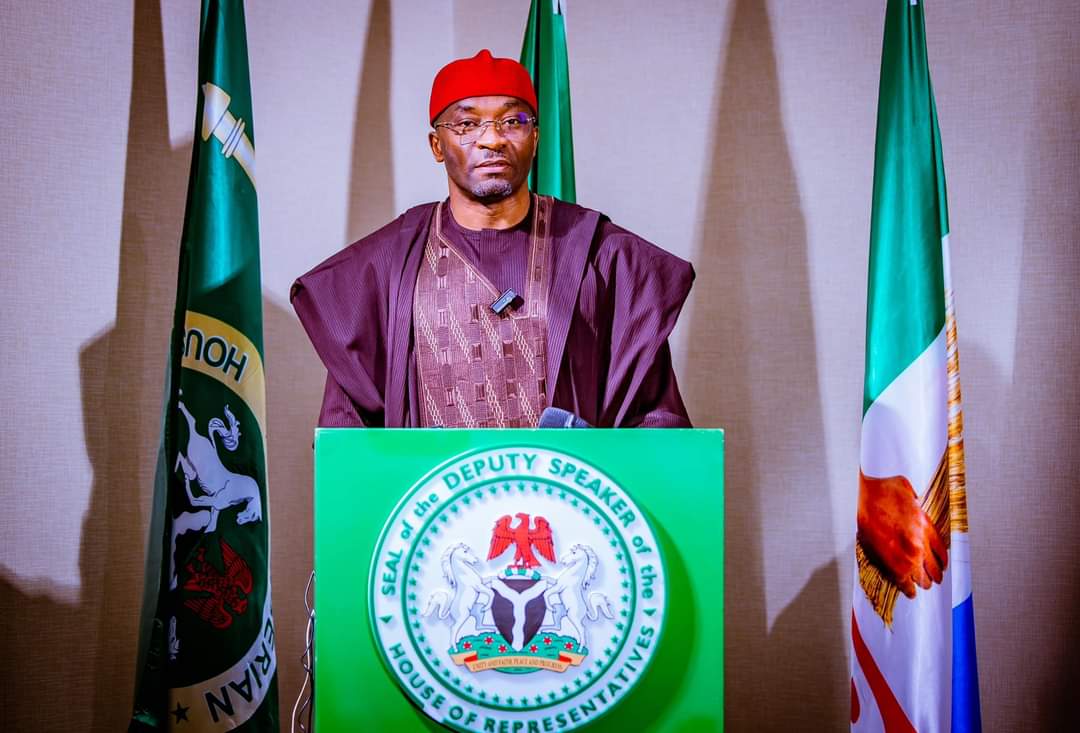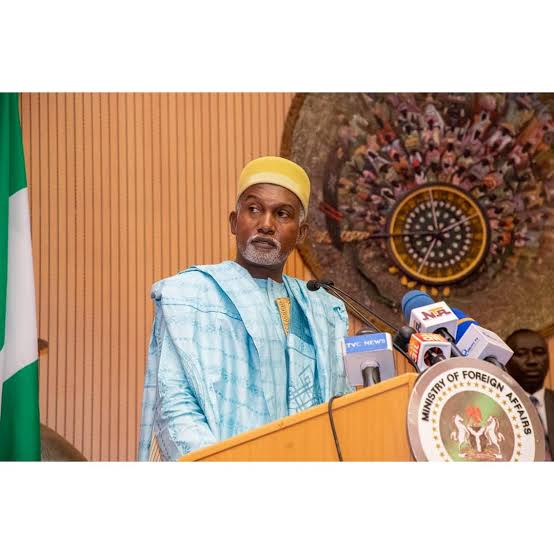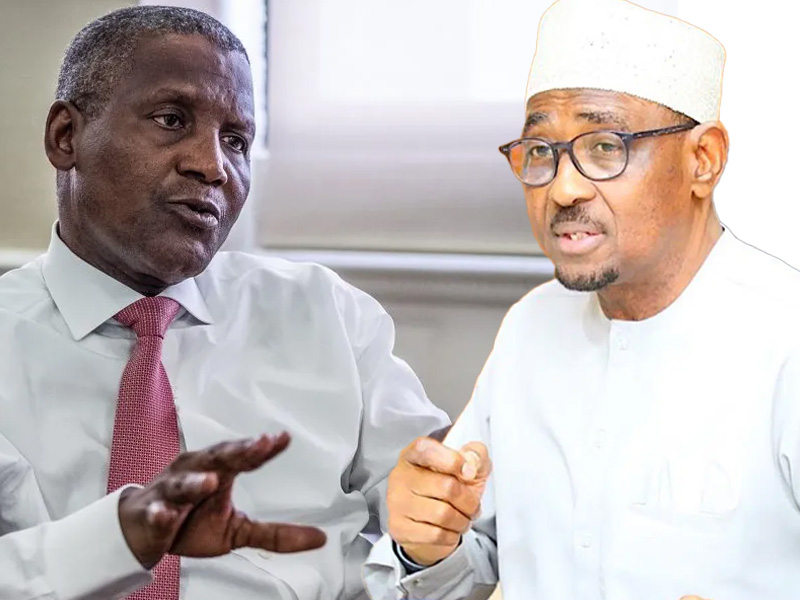Benjamin Kalu At 54
IFEANYICHUKWU AFUBA

How much of a man’s life journey is destiny? And how much is personal achievement? We may never be definite about this – at least not while we’re still on this divide. What is certain is the play of both factors at some points in the life of the individual. This is consistent with the Igbo worldview onye kwe chi ya ekwe; when a man says yes, his god also affirms. As Rt Hon Benjamin Kalu marks 54 years on May 5, 2025, his story strikes us with the smell of someone who said, yes, I can, on the road of life. From humble beginnings of village school sitting on ashes of war; classes under trees without desks and textbooks to the sixth citizen of Nigeria, some fifty years later, is a grace – laced walk of courage and determination. Here, we encounter a significant intersection in one of the thoughts of Kalu who holds that ‘education has the power to lift a child from the most unlikely places and set him on a path beyond imagination.’
Benjamin Okezie Kalu was among the first “generation” of southeast politicians to join the APC shortly after the party came into being. That was a step that spoke volumes. Even now, some nine years after, the party is troubled by a sense of alienation from the hearts of the people and core interests of the region. In those early days, declaration for the APC elicited resentment; if not stigma. It demanded confidence and conviction to take such bold. As daunting as the path might be, the travel had to be undertaken because there was a sense of mission. In the competitive milieu of Nigerian politics, the concept of connecting to the centre sometimes comes across as a narrow fixation. But then, is there any ideology that is infallible? Is there any thought that cannot be criticised? The courage of conviction intervenes, distilling a path from the forest of contending forces and factors. And even this resolve is notable; it says much in an environment where politicians hold out like holiday makers, strutting tourists who waste no time turning to the next object of attraction.
But it’s not as if for Kalu, there are no other permutations, no other perspectives and choices. He had begun his political journey as a member of the PDP, emerging as diaspora chapter national chairman in 2001. He served as local government chairman from 2002 to 2005 and thereafter appointed into the Abia State Executive Council as Special Adviser to the Governor. Contributing his quota to the development of Abia State was an engaging experience for the gentleman fondly called enyi Abia. It was probably in the discharge of his office as Special Adviser on Millennium Development Goals & International Relations that the merit of federal – state partnership seized him. Development goals are more realistically approached via complementary investment sources and options. A collaborative framework of “think home” federal functionaries and Abia State government promised economic benefits to the State. Additionally, it also offered opportunity of inputs on national discourse. And so, on the heels of his service to Abia State, Benjamin Kalu sought and won election into the House of Representatives in 2019.
Kalu had come prepared for the responsibilities of the new dispensation. Although a first time legislator, his education and international exposure provided the cognate experience to fit into the new role. A bachelor of law degree from the University of Calabar and two masters degrees; one in Business Administration from Oxford Brookes university; and the other in Terrorism & International Humanitarian Law offered a strong foundation for productive engagement with the society. In between legal practice and business endeavours, he earned diploma in international commercial arbitration from Chartered Institute of Arbitrators, UK. A Fellow of the Institute of Administrative Managers, it was therefore not surprising that Benjamin Kalu was selected for committee chairmanship in his first term in the House of Representatives. A memorable feature of his performance as Chairman, Media and Public Affairs committee would be his defence of the House’s invitation to President Mohammadu Buhari to come to it’s chambers. Attorney General, Abubakar Malami had queried the power of the House’s summon. Countering Malami’s position, Kalu stated:
“ I can assure you the parliament did not act in error and this I say based on the constitution. There’s a mandate and that mandate is well expressed in Sections 88, 89.” He clarified that the summon was founded on the subject matter of insecurity. His submission that the President, being the chairman of the Security Council under the Armed Forces Act, a piece of legislation by the parliament, was answerable to the National Assembly, was enlightening. The Bende constituency was reckoned among the top ten legislators of the period, both in terms of number of bills sponsored and general performance.
With quality constituency projects and several federal agency interventions to show for an impactful four year representation, Kalu looked forward to the renewal of his mandate in 2023. Ordinarily, it would be smooth sailing. But the times were not ordinary. Mr Peter Obi’s presidential aspiration had assumed the force of a mass movement. Aggregating generational, geo – cultural and class anger, it’s socio – political expression wavered between revolt and revolution. In much of the southeast, political dissent from the movement was threatened with magisterial fury. In the ensuing electoral tsunami, established political strongholds came crashing in the southeast. Hon Benjamin Kalu’s victory as an APC candidate in these impossible circumstances was an outstanding development. It showed the strong stuff the candidate was made of. More significantly, the outcome underscored his warm standing with the people. Admiration trailed the feat far and wide. Thus, cheers greeted the news of Kalu’s election as Deputy Speaker, House of Representatives. The vision he espoused in 2019 was now coming to fulfillment. “I see myself as representing the entire Nigeria starting from Abia State.” How prophetic. And from this point, we find a delicate balancing of government stability, national unity, southeast interests, Abia State development needs and Bende federal constituency advocacy.
Aside supportive role in statecraft and responsive government, Kalu’s progressive agenda continues to be expressed in bills either for new laws or amendment of extant statutes. Among many others, he is the sponsor/co – sponsor of bill for state police; bill for university of medical & health sciences; bill for establishment of federal college of education, Abia State and seat in parliament reservation bill. On the latter, Kalu explains that the proposed legislation seeks to correct the tiny proportion of female membership in the legislature; a situation traced to cultural and economic disadvantages confronting women in many societies. It’s doubtful though whether majority of Nigerians see this as a problem. While many will predictably rate good governance as panacea to the Nigerian condition, experience shows that affirmation policies never have an easy journey. A regular wearer of Igbo traditional attire, it’s perhaps not surprising that the Deputy Speaker seeks revitalisation of our indigenous languages – for cultural and nation building reasons. Making a case for an institution for study of Nigerian languages, he said:
“An average Nigerian child cannot go to the market to negotiate in our local languages or worship using our local languages. So, it’s important we get it right now to avoid them going into extinction.
You cannot talk about peace and unity and progress without our languages. If we are embracing the diversity that defines our nation, then language must be put on the priority list.
Peace should be communicated in the language that people will understand.”
Nourished on Christian values, Benjamin Okezie Kalu tends towards a live and let’s live attitude to life. Expectedly, he has had his own share of hazards of public office, especially in the stigmatisation of high public office holders. Deliberate misrepresentations in the media can be vexing but somehow, Kalu tries to cope with the vice. When his bill for the upgrading of National Institute for Nigerian Languages (NINLAN), Aba, to a university, was mischievously presented as bill for establishment of Bola Ahmed Tinubu University, he chose to shrug off the provocation – even as a columnist cited the falsehood as another evidence of psycophancy in high places. He was content to use opportunity of a courtesy visit by the Governing Board of NINLAN a couple of weeks later to dismiss the propaganda about name change. Driven by the spirit of giving, he had before his advent in politics, set up the Benjamin Kalu Foundation, a charity organisation that catered for the poor and vulnerable groups of society. It’s no surprise then that empowerment schemes form a major part of his outreach programme. Cheers to a life of public service.











